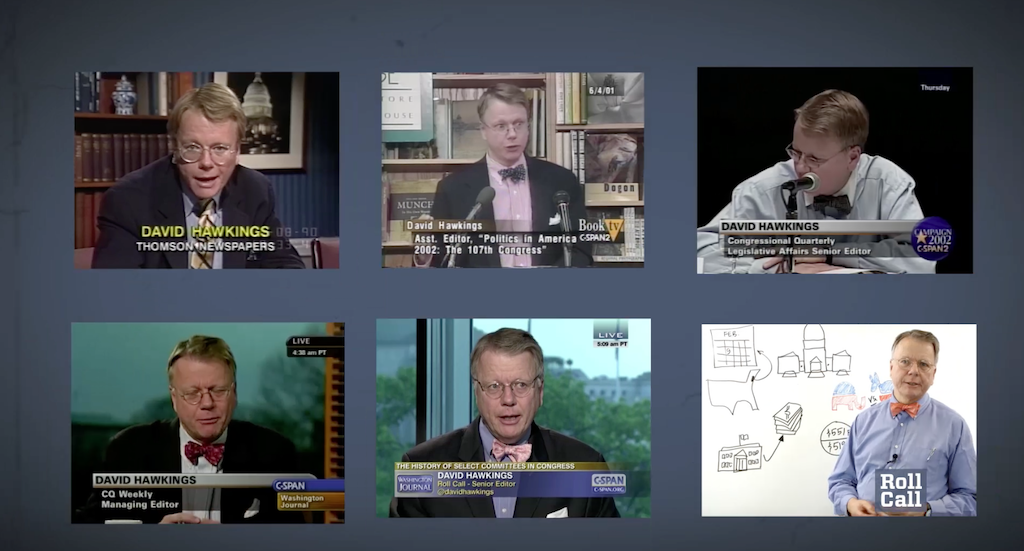Friday is David Hawkings’ last day at Roll Call. “It’s time for me to strike out and do something new,” Hawkings says when reached by phone. He stresses that he’s leaving of his own volition and that the Economist Group’s planned sale of CQ Roll Call to a data startup called FiscalNote had no role in his decision. He says he started telling people around the office Monday, two days before employees found out about the sale.
Hawkings came to CQ in 1995. He’s such a fixture of Roll Call that his last name appears as its own navigation category on Roll Call’s website. In his dogged pursuit of covering Congress, he makes videos, he blogs, he does TV and radio. (Longtime WAMU listeners may remember his “Hawkings Here” segments; now he can be heard on Federal News Radio and seen often on WJLA’s Government Matters show.) His most recent byline was on Thursday: “I’m kind of a run-through-the-tape kind of guy,” Hawkings says by way of explaining his productivity when reached by phone.
Leaving Roll Call is something he’d pondered doing for a while, Hawkings says, and while he has no immediate destination, he has no plans to give up journalism. “I’d like to help,” he says. “I think democracy in this country is threatened”–he’s written lots about why he sees Congress as broken–“and I think I still have a role to play in translating Congress for people in a punchy, straightforward, and clear-eyed way.”
Roll Call‘s future isn’t exactly clear, either. The “community newspaper of Capitol Hill” has had a rocky last few years. It’s been slow to make the transition to a digital news audience and has lost ground to competitors like Politico and the Hill. More perilously, for a company that will likely soon be owned by a tech firm, it makes much of its money via the unfashionable business model of selling advertising. CQ operates a bit differently, offering premium products like legislative tracking, deeply sourced trade journalism, and policy analysis.
After news of the sale broke, the company sent around an FAQ that said the combined operation, to be called FiscalNote, “will incorporate significant elements of the CQ Roll Call brand into its product suite and branding.” While the document saluted CQ Roll Call’s “decades of loyal users, readers, and followers,” it also promised a “learning period with regard to process, product, staffing, and technology; we do expect there will be employee and team changes as we learn more about the combined company after the close.”
If you make your living as a journalist, that’s the kind of phrase that could get your eyebrows get stuck in a raised position for a week. But Hawkings has nothing but praise for his soon-to-be former employer, which he says helped turn him into a multiplatform monster. “I came here as somebody who could only write longform or shortform journalism, and these guys helped me reinvent myself,” he says. “Now it’s time to take that skill set and find somebody who wants me to use it.” Friday will see a toast in the office, as well as a happy hour to send him off.




















